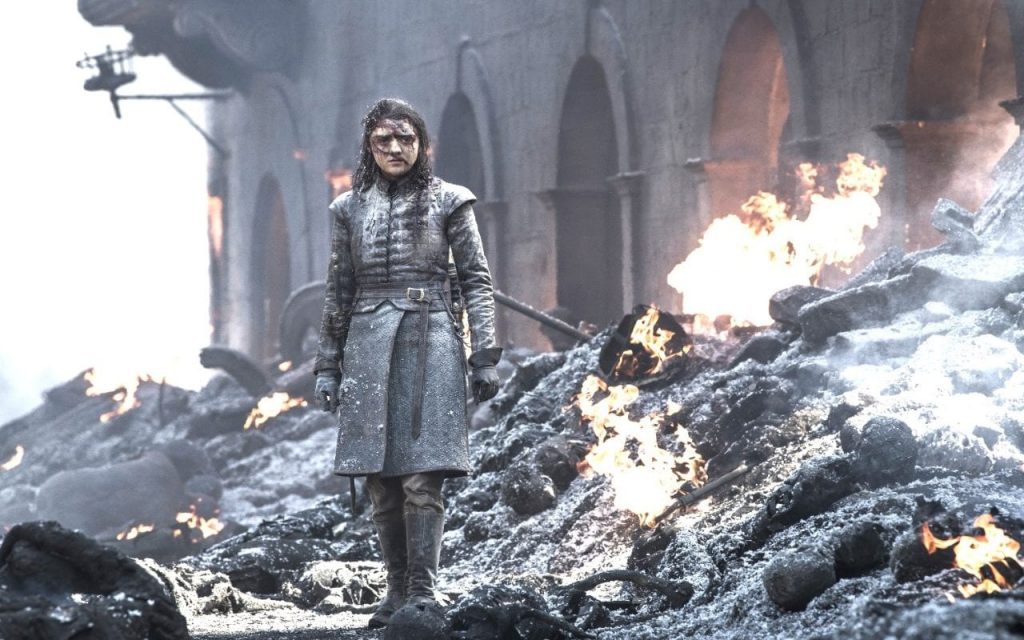t’s been a while since Game of Thrones’ finale aired. That gives us enough space to distance ourselves from the initial frustration and disappointment invoked by ‘The Iron Throne’.
Before we get into the things that Game of Thrones did wrong, it’s important to remember that Game of Thrones did many things right. It struck a good balance between worldbuilding, character focus and political intrigue. Characters’ survival depended on who their friends (and enemies were) and how well they played the game until their last breath. Their kings and queens and dragons, yes, but more importance was paid to the middle-men such as Tyrion, Littlefinger and Varys, who advised their rulers on both important and trivial matters, often harboring their own sinister schemes.
What eventually did Game of Thrones in, of course, is the way it changed the way ‘event television’ was being consumed. From the Red Wedding to the Sack of King’s Landing, Game of Thrones brought people together to watch its spectacle in a way few others, if any, have done before it. Eventually, the need to create bigger spectacles every season outgrew the show’s original pace. Soon, characters began crisscrossing Westeros at Barry Allen-like speeds.

Game of Thrones was always going to be a difficult show to end. There were dozens of story threads involving hundreds of characters. D&D tried to cram as much storytelling as they could into the last six episodes. But that meant there was hardly any room for the characters to breathe. Game of Thrones is different from shows like the Walking Dead, in that it’s designed to end. There was always going to be a Long Night, and provided that enough characters survived, a final dash for the throne. How these things came about, however, left much to be desired. It felt as though the showrunners and the cast were in a hurry to leave Game of Thrones behind.
One of the reasons that Game of Thrones felt so hollow at its core is that, perhaps, Benioff and Weiss lacked the insight that George R.R. Martin gets when writing about this particular set of characters. Once they surpassed his novels, they didn’t have his character monologues to rely on for future episodes. That’s perhaps why characters feel uneven and even bastardized in many instances this season. There are the obvious flaws, such as Dany making the leap from incompetent ruler to a genocidal conqueror; but there are also other instances that ring wrong, such as Jon Snow being in denial about Daenerys for so long, and Tyrion constantly misjudging the people around him to disastrous effects.
In terms of scale and production, Game of Thrones is bigger and better than ever before.
The Sacking of King’s Landing and the Battle of Winterfell were beautifully shot; the Last Watch documentary revealed how the crew had to rebuild the entire city of Kings Landing which could be destroyed during Daenerys’s rampage. Yet that hollowness remained; and for a show that’s firmly about the characters and the choices they make, it was frustrating to see its cast go through the paces without revealing what was going on in their heads. Clearly, something was lost in the transition from Martin’s plans to the end product.
It’s safe to say that when making these choices for the last season, the showrunners and writing staff were banking on the show’s immense popularity and mainstream appeal to make up for their shortcomings. And of course, there are many fans who have found season 8 as enjoyable as previous seasons. However, it’s still disappointing to see the staff play so fast and loose with the show’s central tenets. And even the endings, when they came, felt, well, more bitter than bittersweet.
The Starks came out ahead in most cases, and in theory, that should feel good, since the show has been, in many ways, the Starks’ story from the start. But there are so many plotholes- and possible fridge logic- that it makes the whole series feel circumspect. If Bran did know the future from the start, for instance, then he purposefully sat through several horrible events because he knew that, in the end, he would end up becoming king.
Game of Thrones, of course, doesn’t exactly crash land as much it tumbles down the runaway before skidding to a stop. There are loads of series with worse endings (Dexter, I am looking at you). It’s a series that will garner kinder reviews with time, once the initial disappointment of the recent seasons has washed off. This isn’t our last foray into Westeros, not by a long shot. And there’s always the last two books that Martin is still working on. As of now, the Winds of Winter has a prospective 2020 release date.
There will probably never be another show like Game of Thrones, and that’s a pity, given how it shortchanged its characters in the rushed final season. But at least we were there when it was good, for the brief period of time where it could claim to be the best show on television. There will be new contenders for that crown soon enough: Chernobyl is already garnering rave reviews, and Damon Lindelof’s The Watchmen is premiering later this year. But then again, those shows won’t be Game of Thrones, and perhaps, that’s for the better.